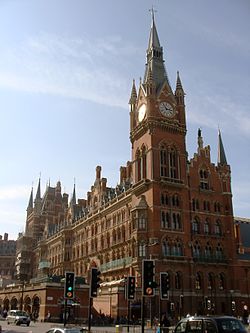Continued from Victorian era facts part 1
Child labor was rampant throughout the Victorian period. A major reason attributing to it was the fact that the families did not earn much and the food prices had increased for a certain duration. This made it difficult for the earning members to earn enough to buy food and satisfy the requirements of the family.

Also, the family structure comprised of grandparents, parents, children, aunts, uncles etc. The number of family members living together was burdensome. Thus, parents were forced to send their children to work and bring some more money. However, despite working for long hours, the children were underpaid and as such their living conditions hardly improved.
Victorian Era Facts about Politics
The English government under the rule of Queen Victoria was a monarchy which also comprised of a Parliament. The Parliament was a Bicameral legislature which consisted of The House of Lords and The House of Commons. The said houses would meet separately and passed a bill as law by majority votes.
However, for the bill to passed, it was necessary that both the houses accent to it. The members of the House of Lords not elected by public voting and the Lord Chancellor was appointed to supervise its activities. On the other hand, the members of the House of Commons were elected by public voting.
Victorian facts about Political Parties
In the initial years of the Victorian period, there were two strong political parties, The Whigs and the Tories (Conservatives). These were the first political parties in England who dominated the political field throughout the Victorian reign.
The Whigs were in favor of growth of the Parliament and wanted to restrict the royal power. Towards the end of 1850, the Whigs became Liberals. They were of the opinion that Parliament should all the decisions and all men should be having a right to vote and elect members. In 1858, Lord Palmerston, the Prime Minister of England resigned from his post after the Orsini plot against Napolean III, the French emperor fell out.
Tories, the other dominant party was in favor of monarchy. Many rich officials belonging to high posts were members of this party. Their view about voting was exactly opposite to that of the Whigs. Tories believed that only those men who were rich and owned large plots of land should have the right to vote. There were three Reform Acts in 1832, 1867 and 1884.
Laissez Faire: Discussion about the economic policy of minimal government intervention.